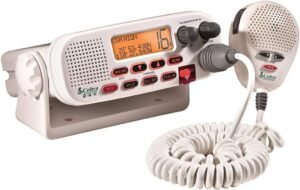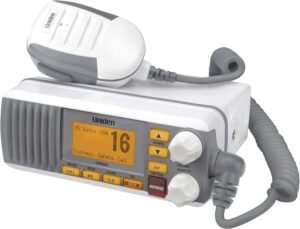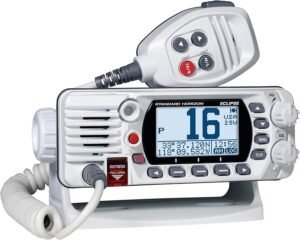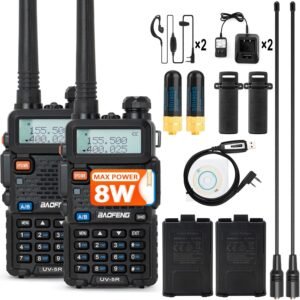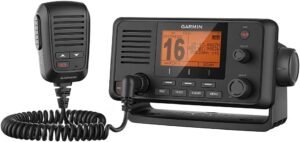Best Marine Radio: Essential for Safety and Communication at Sea
Marine radios have long been the cornerstone of effective communication and safety measures on open waters. Whether you’re navigating a small fishing boat or commanding a larger vessel, the right marine radio can make a significant difference in ensuring your journey’s safety and efficiency.
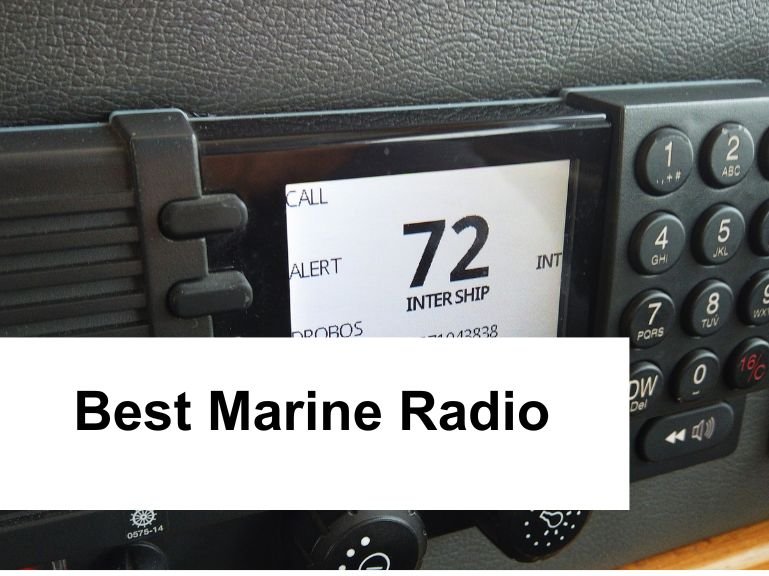
Marine radios, especially VHF radios, are a lifeline for sailors and boaters. They serve as critical communication tools with other boats, marine authorities, and in distress situations. Today’s marine radios come with advanced features like GPS integration, weather alerts, and the ability to send distress signals, making them more versatile and reliable than ever before.
Types of Marine Radios
The marine radio world presents two primary types: handheld and fixed-mount radios. Handheld VHF radios, akin to sophisticated walkie-talkies, are portable, compact, and typically come with their own battery packs. They are essential for small boats or as a backup communication tool. On the other hand, fixed-mount radios are installed on the vessel and connected to an external power source and antenna, offering more robust features and longer-lasting use.
Top Marine Radio Models
Cobra MR F45-D Fixed Mount VHF Marine Radio
Cobra’s VHF Radio stands out for its balance of functionality and affordability. It is a preferred choice for boaters who need reliable communication without the extra frills.
Uniden UM385 25 Watt Fixed Mount Marine Vhf Radio
Uniden’s VHF Radio models are known for their durability and ease of use, making them a top choice for both recreational and professional use.
Standard Horizon GX1400 Eclipse Fixed Mount VHF Radio
The Standard Horizon VHF Radio combines advanced technology with user-friendly features, offering a seamless communication experience.
BaoFeng Radio UV-5R 8W 2Pack Handheld Ham Radios
BAOFENG’s VHF Radio is another notable mention, favored for its compact design and efficient performance.
Garmin 0100209800 VHF 215 AIS, SlateGray with Amp Yellow Band
This model from Garmin is a blend of advanced technology and user convenience, making it a top choice for modern boaters.
Choosing the Right Marine Radio
Selecting the right marine radio depends on several factors. Key considerations include battery life, antenna quality, GPS capabilities, range, and waterproofing. The longer the battery life, the more reliable the radio is during extended trips. The antenna’s quality affects signal range, and GPS integration is crucial for accurate location reporting. It’s also essential to opt for a radio with a robust waterproof design to ensure durability in marine environments.
How to Use a Marine Radio
Operating a marine radio effectively involves understanding its basic functions and the correct use of channels. The most crucial channel is Channel 16, reserved for emergency and distress calls. Familiarize yourself with how to send distress signals and the protocol for regular communication to ensure you’re prepared for any situation.
FAQs
Why Do I Need a VHF Radio on Board?
A VHF radio is essential for routine activities on board, like communicating with other boats, staying updated with weather forecasts, and in emergencies, it can be a lifesaver.
Do I Need a License for a Handheld VHF Radio?
Most handheld DSC/VHF radios require a special license, making it important to check local regulations before use.
How Do I Send a Distress Signal with a VHF Radio?
To send a distress signal, switch to Channel 16, use high power, and clearly state your distress message along with your position.
How Far Can the Average VHF Radio Reach?
The average VHF radio can reach up to 100 miles, depending on conditions and equipment quality.
How Can I Tell if My Radio Needs Replacement?
Signs like fuzzy-sounding feedback when switching channels can indicate it’s time for a new radio.
How Important is Marine Radar for Safety and Communication at Sea Compared to Marine Radio?
Marine radar systems for navigation are crucial for safety at sea. While marine radio is essential for communication, radar provides crucial information about other vessels, landmasses, and obstructions. This technology is especially important during low visibility or in congested waters, making it a critical tool for maritime safety.
Conclusion
The best marine radio for your needs depends on a variety of factors, including the type of vessel you operate and your communication needs. By understanding the different types and features of marine radios, you can make an informed decision that enhances safety and communication on your maritime journeys.

